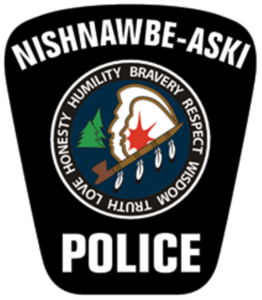Nishnawbe-Aski Police Officers vote in favour of strike action
 TORONTO (July 15, 2016)–CNW/-PSAC members of the Nishnawbe-Aski Police Service (NAPS local 00401) voted and returned an overwhelming strike mandate.
TORONTO (July 15, 2016)–CNW/-PSAC members of the Nishnawbe-Aski Police Service (NAPS local 00401) voted and returned an overwhelming strike mandate.
NAPS officers provide culturally-sensitive policing services in 35 First Nation communities, covering two-thirds of Ontario, from Thunder Bay to Hudson’s Bay. NAPS is the largest First Nations police service in Canada and the second largest in North America.
Injustice has to stop
“PSAC has been a leader in protecting and defending the rights of Aboriginal Peoples for decades on fundamental issues such as safe drinking water, justice for missing and murdered Indigenous Women and First Nations children, to name a few,” said Sharon DeSousa, PSAC Regional Executive Vice President for Ontario.
“The discriminatory underfunding of First Nations policing needs to stop. We are calling on federal and provincial commitment to rectify this injustice immediately. Officers and community members have been bearing the burden of under-funding too long,” added DeSousa.
Faulty funding model
“It is clear that the employer doesn’t have it in their power to provide the staffing and infrastructure required to protect our members and by extension, community members,” said Jason Storkson, local president.
“This isn’t about wages alone. Officers are working alone without proper infrastructure, support, or back up. They don’t want to leave these communities but are desperate to get action on funding. It is reaching crisis levels and officers are paying the price while communities are not being served,” concluded Storkson.
Parity in wages and increased staffing
NAPS officers have been trying to enforce an arbitrator’s decision from 2015 that would see them move closer to OPP compensation, who perform similar duties in non-First Nation communities. In addition to equitable wages, NAPS officers are looking for increased staffing and addressing health and safety issues in the communities that they work. Many officers work in remote northern communities alone and with back up a minimum of four hours away.
SOURCE Public Service Alliance of Canada


